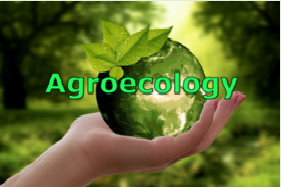
AS the battle for supremacy between agroecology and industrial agriculture gets more intense, food historians will carry the day for agroecology and indigenous food systems.
Every African community has a deep history of its food system including intricate details on what has changed in the local food systems over the years.
The fact that many African countries do not have food historians and much of the food systems have remained undocumented is an opportunity for young people to carve new career paths as food historians.
By not documenting and tracking the history of their food, most African countries risk losing the history of their own indigenous food systems.
Why should they just focus on the history of the liberation struggle as if food did not have a role in liberating masses from colonial rule?
Where is the history of legendary African mass territorial markets like Mbare, Makola and Nakawa and more than a thousand others to be read if no one is documenting them? Where are African countries going to get the history of African food systems for the next generation if there are no food historians?
Agronomy is not enough without the history of food systems. Since, universities are not teaching or documenting the history of indigenous African food systems, African territorial markets can be a starting point for re-creating the history of African food by enabling researchers and historians to track food types and sources through elders who have been in these markets for decades.
The power of history and documentation
- Zim farmers embrace agroecology
- Farmers urged to venture into agroecology
- Cultivating agroecology in Global South
- Sustainable farming transforms Shashe community
Keep Reading
Without careful tracking and documentation, communities can easily lose their best livestock breeds and resilient crop varieties to opportunists and corporates who are getting into communities and taking advantage of the demand for indigenous food in distant markets which local communities do not know about. It is through documentation that governments and development organisations can assist in building local resilience by capacitating communities to preserve their local food systems from external infiltration.
Without documentation it remains difficult to learn from shocks like El Nino. That is how documentation should have assisted African policy makers to learn from COVID-19.
The other power of documentation is that it can answer questions like how are communities surviving? What are their sources of income and livelihoods? Answers to these questions can inform climate mitigation measures and frameworks for replication in many communities.
When extension officers track and document these trends, countries stop depending on negative narratives perpetuated by development agencies and alarmists that use negative stereotypes about African food systems as a pretext for continuously receiving donor funding. When a fluid evidence collection and analysis system is established, it can show how communities are coping, what is happening to markets as well as seasonal new sources of food for communities that depend on wild fruits.
Tapping into experts on indigenous food
During shocks is the best time for government and development organisations to work with communities in getting the right seed for the right regions as opposed to foisting mono crops like maize in communities where it does not do well. Indigenous experts on indigenous seed should be working with territorial markets to identify diverse seeds of legumes and small grains which can be availed to local communities through local agricultural dealers and community seed banks in preparation for the coming planting season.
That way, communities do not just wait for government seed distribution which often comprise hybrids that are more vulnerable to El Nino and other climate shocks. The role of extension officers in farming communities should not just be defined by rainfall seasons. Instead, their role and relevance should include tracking community coping strategies, mechanisms and positioning investments from outside.
From experience sharing to packaging knowledge and practices
After spending more than 10 years in communities, some development organisations should ask themselves what knew experiences and knowledge they can bring to the communities that have continued to struggle on their own. It should no longer be about promoting look and learn visits but packaging the aspirations, requirements, losses and resilience strategies in local communities.
The best way of protecting local food systems can be in the form of supporting communities to be competitive in the market. If the AfDB, IFAD, the World Bank and many other big organisations are really interested in local food security, they should support home-grown solutions rather than pushing external innovations. On their part, academics and universities should be assisting communities to document their food systems into compelling investment packages.
Documentation can also reveal the thin line between agroecology products and natural products. Agroecology products are often available in many communities but there are no systems for collecting statistics on volume compared to maize and industrial products.
The beneficiary model used by most development organisations has out-lived its usefulness because it does not capture the history of local food systems and socio-economic resilience.
With the right documentation and historical trends, it should be possible to convert a whole community into agroecology rather than work with a few beneficiaries in a community that has more than a thousand households. If they are curious enough, universities can also set up agroecology innovation hubs.
- Charles Dhewa is a proactive knowledge broker and management specialist







